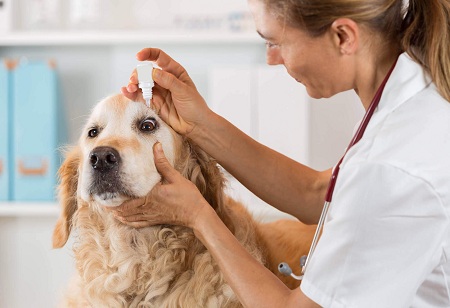
The untapped growth and expansion potential of emerging markets is pressing for a significant transformation in the global veterinary pharmaceuticals market. These markets present a promising landscape for veterinary pharmaceutical companies as a result of increasing disposable incomes, a rise in pet ownership, and a growing emphasis on animal welfare. In places like Asia, Latin America, and Africa, the demand for veterinary medicines and healthcare products is skyrocketing, creating a lucrative market for producers and suppliers. However, it is important to consider that emerging markets may also come with challenges such as regulatory complexities, cultural differences, and infrastructure limitations, which could potentially hinder the growth and expansion of veterinary pharmaceutical companies in these regions.
The developing markets for veterinary pharmaceuticals are examined in this article. Understanding and taking advantage of these possibilities can give veterinary pharmaceutical firms an advantage while also advancing global animal healthcare.
At the forefront of veterinary pharmaceutical innovation, biologics, and vaccines offer cutting-edge solutions to a variety of issues affecting animal health. Animals can receive therapeutic interventions from biologics, which are made from living organisms, for a range of diseases and conditions. They have the potential to fundamentally alter the way that complex and enduring medical conditions like cancer and autoimmune diseases are treated. Animal infectious diseases can be controlled and eliminated with the aid of vaccines, which are essential in preventive medicine. For instance, the creation of a novel biologic vaccine for a zoonotic disease like rabies could be substantially beneficial for public health. This vaccine could be used to effectively prevent transmission of the disease from animals to humans, reducing the number of human cases and potential fatalities. In addition to safeguarding specific animals, they also promote biosecurity and public health by halting the spread of zoonotic diseases, which can spread from animals to humans. The development of biologics and vaccines presents promising opportunities as the need for more efficient and specialized veterinary treatments increases for pharmaceutical companies to meet these evolving needs. Investing in research and development within this segment can lead to breakthrough treatments and disease prevention strategies, ultimately benefiting animal health and welfare. “Lyme disease and other tick-borne diseases present a tremendous public healthcare challenge,” said Scott Williams, PhD, chief scientist and department head at the CAES, which performed field trials of the vaccine in residential settings in Redding, Connecticut. “We need to continue to support efforts to innovate and provide these types of new tools.”
The market for veterinary pharmaceuticals is witnessing unprecedented growth for nutraceuticals and functional foods due to the growing emphasis on animal nutrition and well-being. Animals can benefit from the essential nutrients and bioactive compounds found in natural products called nutraceuticals that are derived from plant and animal sources. While supporting overall animal health and performance, functional foods are designed to offer specific health benefits above and beyond basic nutrition. Pet owners, livestock farmers, and aquaculture farmers are becoming more and more interested in these products as natural and holistic methods to improve the health and productivity of their animals. Animals with increased immunity, better joint health, better gastrointestinal function, and overall better health have been linked to nutraceuticals and functional foods. Pharmaceutical firms that make investments in the study and creation of cutting-edge nutraceuticals and functional foods stand to gain access to a sizable market. Customers may become more devoted to these products and more confident in their efficacy if these products have the potential to address a variety of health issues in livestock and companion animals.
Aquaculture has grown to be a significant part of the fisheries sector as the demand for seafood on a global scale increases. However, more diseases that can harm fish and prawn populations are more likely to spread as a result of intensified aquaculture practices. Aquaculture Pharmaceuticals such as probiotics, vaccines, and antibiotics, are essential tools for preserving the health and welfare of aquatic species. By preventing the development of infectious diseases, vaccines help promote responsible antimicrobial use while reducing the need for antibiotics. Probiotics are a natural and environmentally friendly alternative to antibiotics because of their beneficial effects on gut health. Pharmaceutical companies that invest in aquaculture can help promote sustainable aquaculture methods, which will ultimately ensure consistent and dependable seafood supplies. The potential for growth in this segment is substantial, as the demand for responsibly farmed seafood continues to rise. For instance, Pharmaceutical companies can partner with aquaculture farms to develop probiotics for gut health, promoting responsible antibiotic use and sustainable seafood production.
Biologics and vaccines, nutraceuticals and functional foods, aquaculture pharmaceuticals are emerging as key markets with untapped opportunities in the veterinary pharmaceuticals industry, which is experiencing exciting developments. The potential for innovation and growth in veterinary medicine is increasing as pharmaceutical companies and investors become aware of the potential in these markets. These macroeconomic indicators hold the key to a healthier and wealthier future for both animals and humans by addressing critical health issues in animals, promoting animal welfare, and fostering sustainable aquaculture. The untapped potential of emerging markets in veterinary pharmaceuticals awaits those who are ready to embrace the opportunities they offer. By seizing these opportunities, companies can not only achieve growth and profitability but also contribute to the overall advancement of veterinary healthcare on a global scale.
We use cookies to ensure you get the best experience on our website. Read more...